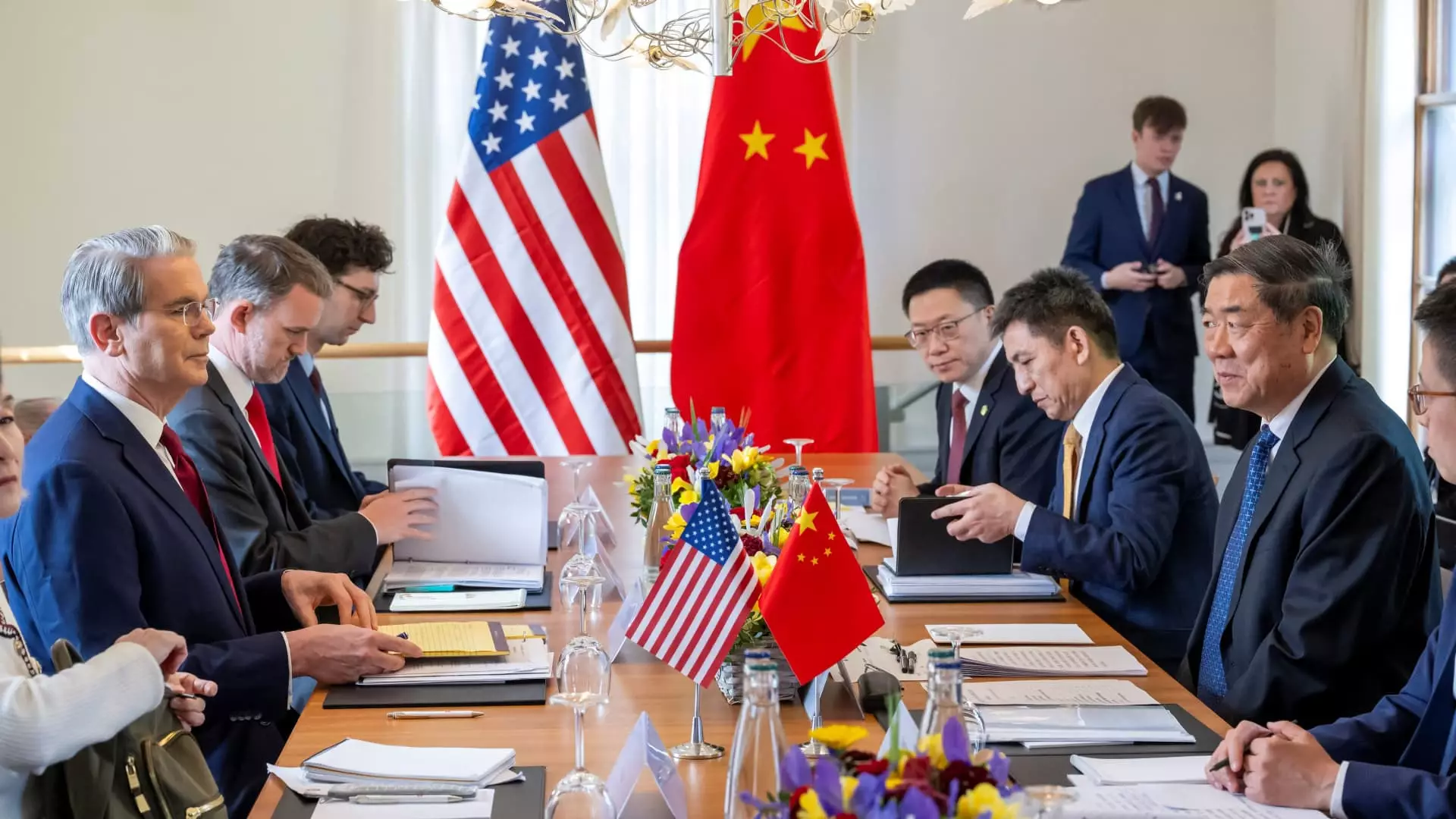The ongoing trade conflict between China and the United States has escalated into an intricate web of accusations and retaliatory measures. The latest unfolding involves accusations from Beijing against Washington for undermining a recently reached preliminary trade agreement, reflecting an all-too-familiar cycle where both nations seem to engage in a perilous game of brinkmanship. The U.S. Commerce Department’s warning regarding Chinese technology manufacturers, particularly Huawei, illustrates an aggressive posture that appears to aim at solidifying American dominance in the technological arena, even if it means jeopardizing broader trade relations.
The use of export controls, couched in the narrative of national security, raises ethical concerns surrounding economic protectionism versus legitimate security measures. While surely the U.S. government operates under the belief that this push towards restricting Chinese tech is a necessary evil, one cannot ignore its potential ramifications. In an age where interconnectivity defines economic prosperity, isolating and punishing nations can lead to further polarization in an already contentious global stage.
Discrimination Cloaked in Patriotism
China’s vociferous rebuttal describes the American stance as “discriminatory” and “market distorting,” a sentiment that begs the question: Is it truly in the interest of fair trade or fear-based nationalism? By framing its actions as protective measures for American industry, the U.S. may unwittingly be sowing the seeds of economic isolationism. Markets thrive on competition and innovation; clamping down on foreign technology suppliers diminishes alternative avenues for growth and progress.
The acts of warning against Huawei chips and other Chinese-made technologies can certainly be viewed through the lens of national security; however, one must consider whether this approach undercuts the very tenets of free enterprise that the U.S. consistently champions. The statement from China’s Commerce Ministry emphasizes a contrast between their stance of defending market interests and the U.S.’s seemingly unilateral imposition of export restrictions. If the U.S. continues down this road, asserting its authority through domineering tactics, it risks alienating its own allies and creating a fragmented world economy that only serves to exacerbate tensions.
The Repercussions of Unilateral Actions
One cannot disregard the pointed warning from China regarding the implications of U.S. policy on global supply chains. The relational dynamics of trade cannot be simplified to an America-versus-China narrative; rather, these actions reverberate through a complex network of global collaborations, technological transfers, and shared innovations. If the U.S. persists in its unyielding demands and restrictions, it jeopardizes not only Chinese companies but also international partnerships that have been cultivated over decades.
The responsibility of fostering a stable economic landscape does not lie solely within the boundaries of a single nation. With global technology interdependencies growing by the day, the labeling of specific nations as threats creates an illusion of security that inherently undermines broader mechanisms for collaboration and growth. This entrenched mindset could weaken American competitiveness over time, particularly if other nations pivot towards alternative markets unfettered by the threats of unilateral U.S. actions.
A Fractured Path Forward
What is evident amid this conflict is a palpable sense of mistrust pervading both nations. As President Trump asserts that tariffs could return to their previous painful levels if negotiations falter, it casts a long shadow over the potential for constructive dialogue. Such brinkmanship raises the stakes, leaving common citizens, professionals, and businesses in both nations caught in the crossfire of geopolitical gamesmanship.
In focusing on controlling the narrative around Chinese technology, the U.S. may have forgotten that collaboration often yields greater benefits than isolation. The imperative for both nations lies in recognizing that sustainable solutions cannot be achieved through hostility; embracing cooperation on shared technological innovations could yield advancements for global economies and arguably strengthen national security across the board.
As the world watches these two titans grapple with their ambitions, the critical question remains: will this spiraling conflict ultimately lead to a balkanized tech ecosystem, or can common interests pave the way for a fragile yet necessary peace? The outcome is uncertain, but one thing is clear—the choice between cooperation and confrontation will define this generation’s legacy in the realm of global trade and technology.


Leave a Reply